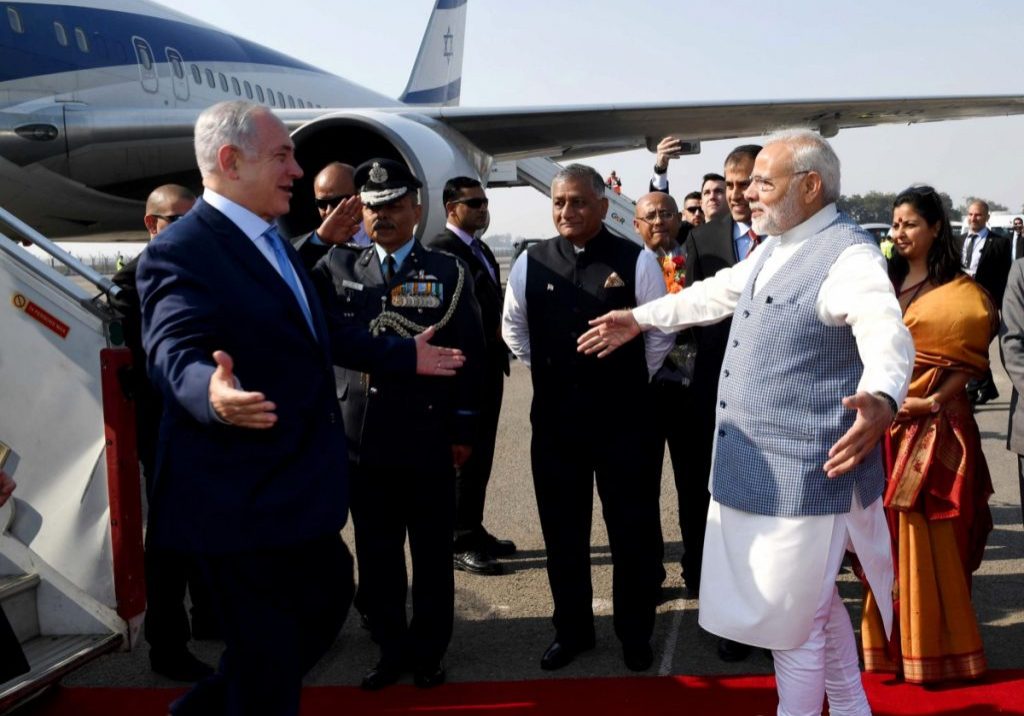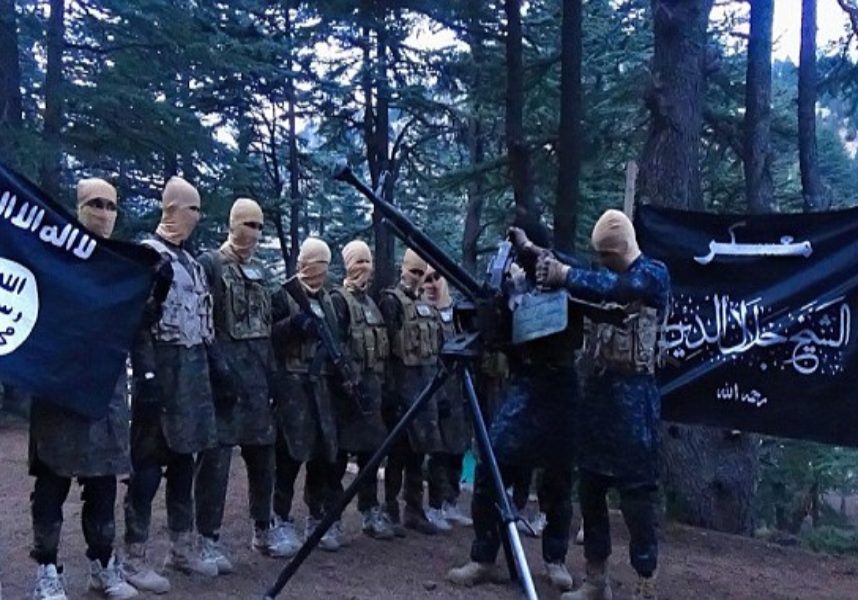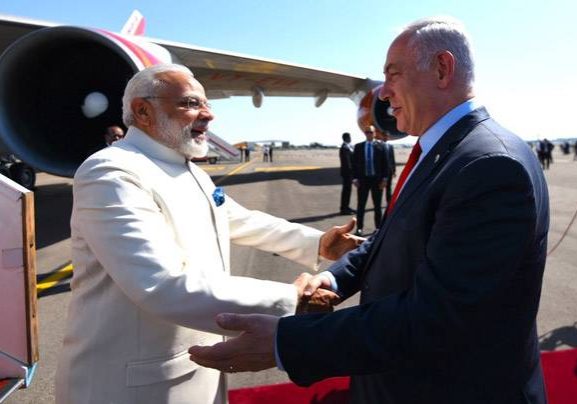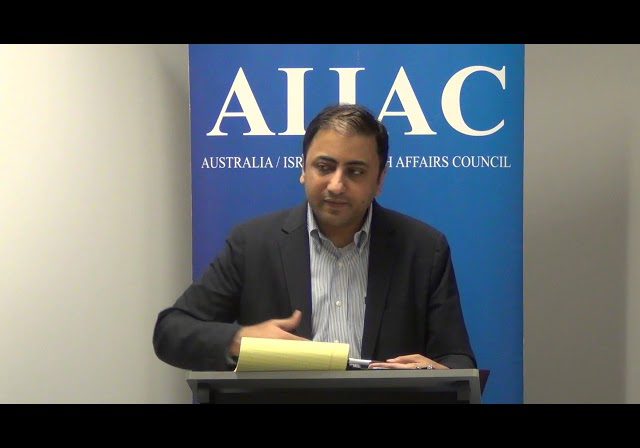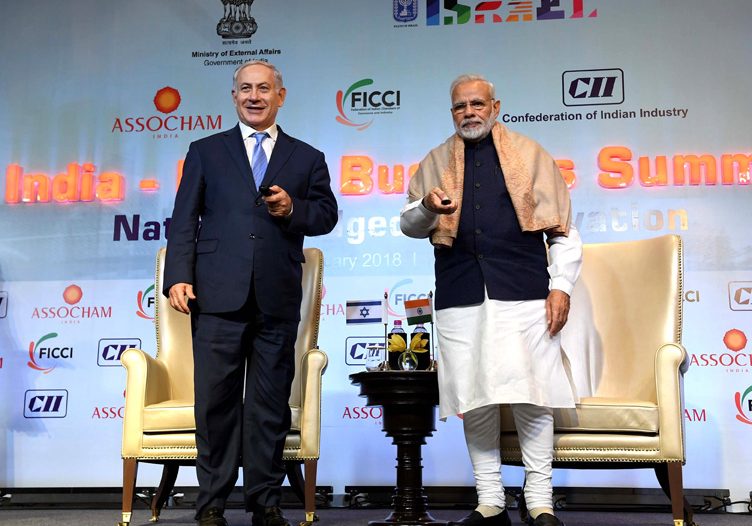Australia/Israel Review
New Delhi Dalliance
Mar 27, 2012 | Yehonathan Tommer
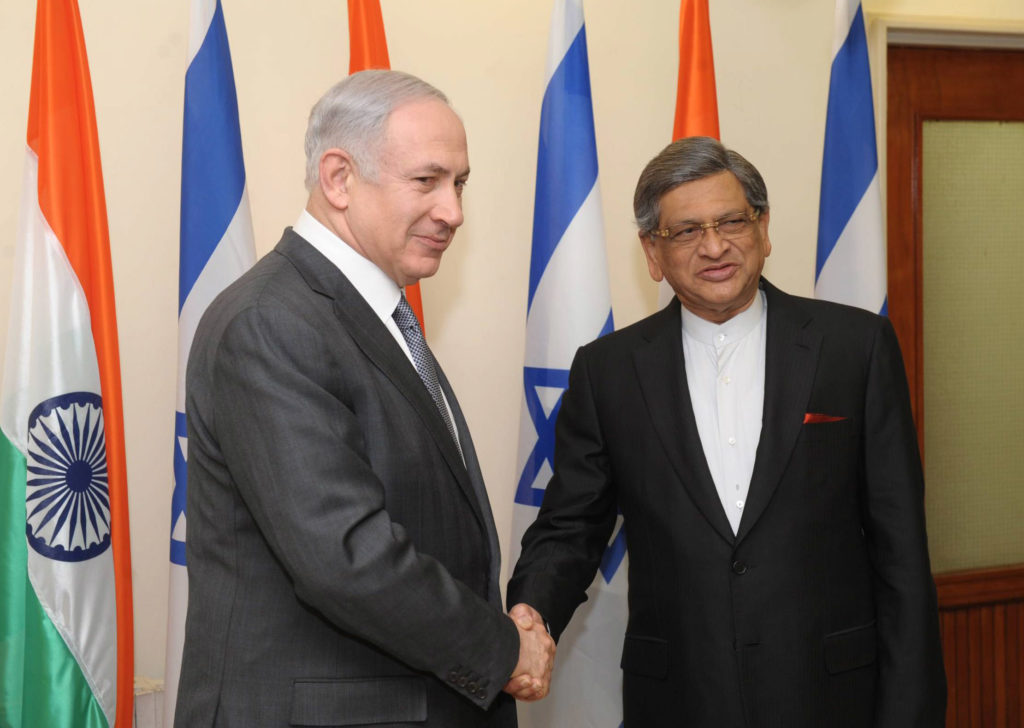
Israel’s Indian tightrope
Yehonathan Tommer
Twenty years after establishing full diplomatic relations, India has formed a cordial network of Israeli bilateral ties aimed primarily at upgrading India’s technological prowess, economic prospects, and military capabilities. These ties are based on converging strategic interests cemented by diverse cultural exchanges. They run on a separate, though contiguous track, from India’s relations with the Arab and Muslim world – which are driven primarily by the need to secure vital energy resources in the Persian Gulf and defend India against Islamic terrorist groups.
The bilateral Israel-India relationship has been consolidated by successive Israeli Presidents, Prime Ministers and senior ministers who have paid numerous official visits to India at the head of large business delegations. Indian governments, especially those led by the currently ruling Congress Party, which depends on votes from the Muslim electorate, have largely avoided top-level ministerial visits to Israel. In January, Indian Foreign Minister S.M. Krishna became the first high-level Indian official to visit Israel in over a decade.
In its editorial printed during the visit, Mumbai’s Indian Express praised Krishna for undertaking the visit, but rapped the incumbent government for viewing Israeli ties through the “redundant Arab-Israel binary.” “Neither relationship is an excuse for ‘balancing’ the other,” the paper wrote.
“After 20 years of diplomatic relations, with a promising future of (Israeli) partnership, the stability of the Middle East is a necessity and responsibility India shares right now with Israel and with its neighbours.”
On regional issues India attempts to tread a tightrope between dissonant Arab and American interests, not always successfully. Moving closer to the US in recent years, India rejects Iran’s clandestine program for a nuclear capability, but says US and European oil sanctions should not replace continued international pressure through the International Atomic Energy Agency (IAEA) and UN Security Council to halt the Iranian program.
Pragmatic Israel-India partnership
Israel’s civilian trade with India today totals US$5 billion annually, making India the Jewish State’s sixth-largest trading partner. Diamond roughs constitute the largest segment of the trade, but agricultural machinery and medical equipment, plastics, chemicals and pharmaceuticals together constitute a second growing category, followed by a third and rapidly developing sector in information technologies, telecommunications and high-tech R&D ventures.
Israel and India have been attempting to finalise the terms of a free trade agreement since February 2010, and are reported to be nearing the end of the process of negotiating the details. A major round of talks on the proposed agreement was scheduled for late March. Both Israeli and Indian officials have suggested Israel-India could as much as triple to US$15 billion annually once such an agreement is in place.
Israel’s aircraft and military industries sell India approximately US$1 billion annually in military hardware, making it India’s second largest supplier. State-of-the-art-equipment supplied by Israel includes early warning systems, electronic reconnaissance, surveillance and detection measures and advanced satellite capabilities, as well as systems designed to help “fence off” India’s 7,000 kilometre-long shoreline against enemy attack. There is also reportedly cooperation in supplying both training and equipment for combating insurgency in India’s urban and desert environments.
Iran and India’s quest for oil resources
India does not have any significant political ambitions in the Persian Gulf or Central Asia where Russia, China, the US and Iran vie for influence. But it does have a vital economic interest in securing regular energy supplies to fuel India’s economy.
India purchases 11 to 12% (US$12.68 billion) of its annual petroleum imports from Iran and India-Persia ties are rooted in thousands of years of continuous trade, cultural and ethnic interaction.
Together with Saudi Arabia (which has been its biggest supplier for the past 15 years), Kuwait and the United Arab Emirates, Persian Gulf oil accounts for almost 59% of India’s annual supplies. These countries are already producing to short-term capacity, and cannot make up an immediate shortfall from a cutback in Iranian supplies, Indian leaders say.
Despite the increasingly tight international sanctions on Iran, Indian Finance Minister Pranab Mukherjee announced in Chicago in February that India will not be cutting back imports of Iranian crude or renegotiating its agreements with Teheran. Indeed, it may actually increase them, he warned, according to an agreement that allows New Delhi to bypass US and European banks, which are increasingly barred from energy industry-related contacts with Iranian financial institutions, and pay 45% of the oil costs in rupees.
Samuel Rajiv, an expert at the Institute for Defence Studies and Analysis in New Delhi specialising in Israel-India relations, told the AIR that the American and European boycott of Iranian oil isn’t a public issue in India yet. “India complies with multilateral United Nations Security Council-mandated sanctions, but rejects a unilateral ban on oil of the kind imposed by the US and the European Union,” viewing these “as a recommendation, and not a binding obligation,” he said.
“Such a ban would upset Indian oil payments to Iran and harm Indian companies from doing business in the oil trade.”
The Hebrew University’s Prof. Yaakov Vertzberger, an Israeli academic focused on South Asia, agrees that India is unlikely to join such a ban in the future. If pressure from Washington succeeds where it has failed with the Chinese, India will see this as an affront to Indian national pride and damaging to its international position, he says.
He also notes that India has good economic reasons to be wary of any military confrontation over the Iranian nuclear program. More than six million Indian expatriates are privately employed in service industries throughout the Persian Gulf. The money they send home to support their families contributes millions of dollars each year to the Indian Treasury, which would be lost if they had to be evacuated home because of a Western military showdown with Iran.
Further, Tel Aviv University Arab Affairs specialist Dr. Uzi Rabi notes that good relations with Iran’s Shi’ite Ayatollahs (developed since the fall of the Shah who preferred ties with Sunni Pakistan) is seen by the Indian Government as a way to help to combat terrorist attacks in India waged by Sunni Islamist groups linked to Saudi Arabian individuals operating from Pakistan and Afghanistan.
This has not saved India from becoming an occasional battleground for Iranian-linked terrorist groups, such as the one which reports allege targeted Israeli diplomatic personnel in New Delhi and Mumbai in February this year.
Should the police investigation confirm that the Iranian al-Quds Brigade was behind the February attacks, as current reports suggest, it is unlikely to precipitate a crisis between New Delhi and Iran, says Israeli strategic expert and proponent of closer India-Israel ties Prof. Efraim Inbar. “The Indians know who they are dealing with. They will simply quietly tell the Iranians to go fight the Israelis elsewhere.”
At the UN
Prof. P. R. Kumaraswamy of Jawaharlal Nehru University, the author of the 2010 book India’s Israel Policy (Columbia University Press), says the Indians believe, with the Chinese and the Russians, that American and European sanctions on oil and other major trade will not force Iran to abandon its clandestine nuclear program. At the same time, they do not accept the Iranian version; they are dismayed by President Ahmadinejad’s anti-American rhetoric, Holocaust denial, and threats to annihilate Israel.
But, he explains, they also firmly oppose a US-led, multi-national military strike against Iran without UN approval. New Delhi’s view is that the international community should continue to press Teheran, as a signatory to the NPT (Nuclear Non-Proliferation Treaty), to comply with the six resolutions adopted since 2006 and allow IAEA supervision and full access to its nuclear facilities.
Israel regularly raises its concerns with the Indians about the dangers of a nuclear Iran at their biannual strategic dialogue on a range of mutual issues, but knows that “it has no influence in persuading their leaders to change Indian positions,” says Vertzberger.
Meanwhile, there has been some shift in recent decades in India’s once staunchly anti-Israel position on Middle East resolutions at the United Nations. Since 1992, India no longer initiates pro-Palestinian resolutions in United Nations institutions and agencies, arguing that the parties to the conflict must themselves resolve their dispute. But in practice, it continues systematically voting for anti-Israel resolutions.
“Of course Israel cares how India acts on the Iranian and Palestinian issues,” says Inbar. But he notes, “Israel studiously avoids publicly criticising Indian positions which might harm the friendly and highly lucrative bilateral economic and defence relationship.”
Perhaps in keeping with that policy, the Israeli Foreign Ministry declined to comment on Israel-India relations for this story.
Tags: India

